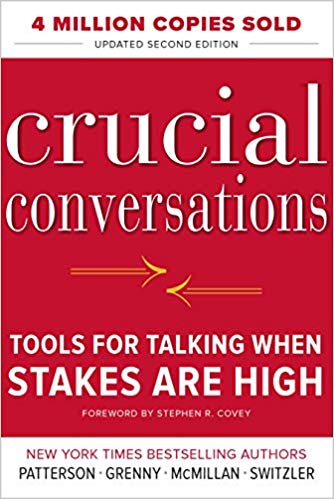

It also impacts morale and psyche: Team members are more likely to consider leaving their job, more likely to shut down and stop participating, less likely to go above and beyond in their responsibilities, more likely to be frustrated and angry, and more likely to complain. When asked how their leader’s style impacts their results, survey respondents said that when their leader clams up or blows up, team members are more likely to miss deadlines, budgets and quality standards and act in ways that drive customers away. When leaders buckle under pressure, it doesn’t just hurt their influence it also hurts their teams. His team felt it was those few moments – the five percent of all moments, when stakes were high and the heat was on – that revealed the truth about who he really was. While it was true that his team agreed he was great 95 percent of time, it was also true that his non-routine behavior was what left a lasting impression. Thirty percent are more devious and deceitful than candid and honest.Thirty-seven percent avoid or sidestep rather than being direct and unambiguous.
 Forty-three percent are more angry and heated than cool and collected. Forty-five percent ignore or reject rather than listen or seek to understand. Forty-five percent are more upset and emotional than calm and in control. Fifty-three percent of leaders are more closed-minded and controlling than open and curious. One out of three leaders is seen by his or her direct reports as someone who fails to engage in dialogue when the pressure is on. The data revealed that a large majority of managers and leaders buckle under pressure. The study of 1,300 people asked respondents to describe their leader’s style under stress and the impact of that behavior. While this fact should keep us vigilant to controlling our tempers and tongues, VitalSmarts’ latest research shows that many leaders struggle to hold it together when the pressure is on. The routine, good work we do day in and day out can easily be tainted by one bad day, one bad interaction or one bad blowup. Just like a first impression, there are crucial moments that happen throughout our day, weeks and careers that become defining moments. If that moment goes badly, you’ll spend the rest of your foreseeable relationship trying to play catch up. First impressions are defining moments – moments that forever color someone’s experience with you and of you.
Forty-three percent are more angry and heated than cool and collected. Forty-five percent ignore or reject rather than listen or seek to understand. Forty-five percent are more upset and emotional than calm and in control. Fifty-three percent of leaders are more closed-minded and controlling than open and curious. One out of three leaders is seen by his or her direct reports as someone who fails to engage in dialogue when the pressure is on. The data revealed that a large majority of managers and leaders buckle under pressure. The study of 1,300 people asked respondents to describe their leader’s style under stress and the impact of that behavior. While this fact should keep us vigilant to controlling our tempers and tongues, VitalSmarts’ latest research shows that many leaders struggle to hold it together when the pressure is on. The routine, good work we do day in and day out can easily be tainted by one bad day, one bad interaction or one bad blowup. Just like a first impression, there are crucial moments that happen throughout our day, weeks and careers that become defining moments. If that moment goes badly, you’ll spend the rest of your foreseeable relationship trying to play catch up. First impressions are defining moments – moments that forever color someone’s experience with you and of you. 
The saying goes that it’s impossible to get a second chance to make a first impression.
#Having crucial conversations training professional
The Certified Professional in Training Management Program.







 0 kommentar(er)
0 kommentar(er)
